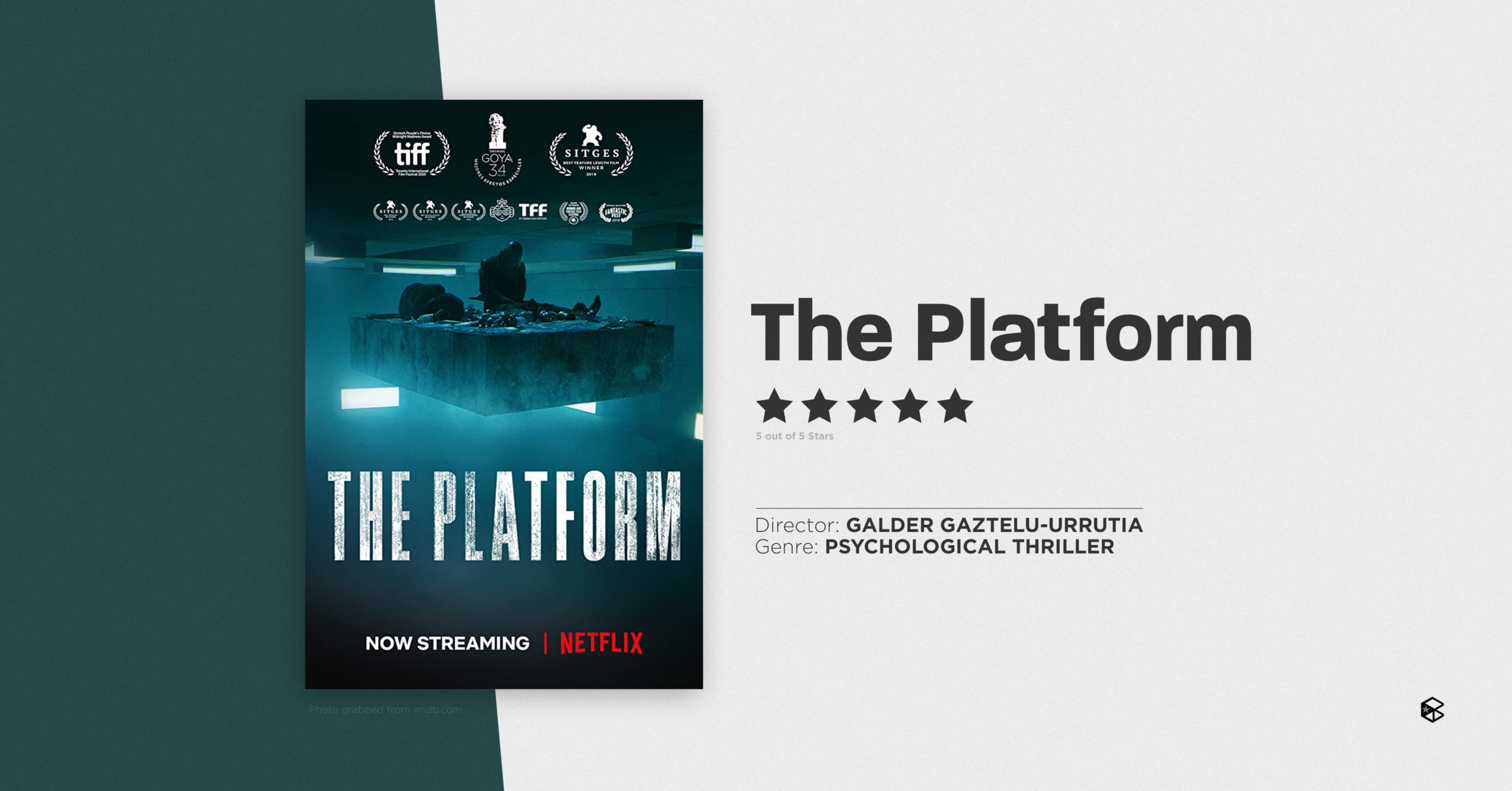The 2019 Spanish film “The Platform,” directed by Galder Gaztelu-Urrutia, depicts the gradual descent to utter insanity in the midst of desperation brought by classism and the incessant competition it entails.
Set in a dystopian-esque penitentiary known as “The Hole,” the story follows how the main character Goreng (Iván Massagué) experiences the cruelty of the systematic division set by the very structure of the concrete hell in which he voluntarily put himself in. Wishing to put an end to his smoking addiction, he sought the aid of this facility for a short stint of six months in exchange for a diploma. However, circumstances took a radical turn once the grim reality of The Hole began to cave in on himself, cascading to the eventual deterioration of his outlook and moral compass.
Macabre and claustrophobic—“The Platform” never failed to captivate its audience with its depictions of brutal and over-the-top scenes of violence; locking them to a continual display of bloodshed and gore. Most of the film’s frames are a tormenting sight to behold: an intense yet slow spiral towards the loss of humanity, specifically once it starts to reach its climax.
Echoing an adrenaline-fueled and nihilistic dynamic, the very substance of the film is both disturbing and eye-opening.
To comprehensively understand the film’s themes and symbolisms, one should look at the sociological and political representations established through its course. Akin to the 2019 Academy Award winner, “Parasite,” both films tackled issues with regards to class divide and privilege. But in sharp contrast to its counterpart, “The Platform” approached these topics in an explicit and grotesque visual language; rather than resorting to the usage of vague and metaphorical techniques.
The essence of the film resonates with the “Conflict Theory” of German socialist revolutionary Karl Marx. Just as stated in the philosopher’s work, every individual locked in The Hole is under a constant struggle over food which gave birth to antagonism and discord. The ones privileged to reside on the upper levels are in a position of power and domination over those unlucky enough to be below them. Those above greedily consume everything they can with wanton abandon since it is their “right,” leaving little to nothing for the others, while those below helplessly hope that even a few morsels of scraps would reach their level. This system, in turn, paved the way for the ever-growing hunger and desperation to culminate to vile acts of cannibalism; giving a new, yet disturbing twist to philosopher Jean-Jacques Rousseau’s quote, “When the people have nothing more to eat, they will eat the rich.”
To say that the film is unsettling would be an understatement to the message that it sought to impart. Against merciless circumstances, fundamental human concepts of intellect and ideology; dreams and aspirations; morals and honor; sexual desires, are all reduced to nothing when brought low to wits’ end by the system; triggering the innate primal instinct to survive. Any semblance of humanity left will eventually be broken, only to be replaced by trepidation and despair. The Hole itself is a dark microcosm of contemporary societal issues.
However, in the thick of totalitarian control and abuse, the main character became a leading force in the attempt to dismantle the unforgiving status quo; expressing leftist ideals of a revolution against a tyrannical institution through struggle.
Everyone is a pawn, a mere puppet to an inherently oppressive over-encompassing system. Until a figure like Goreng would rise and strive to break its structure, we are all doomed to a perpetual cycle of conflict; silently wishing for the so-called “spontaneous solidarity” to transpire.
Amidst all its horror and carnage, there lies a waking call designed to rattle its audience to the atrocities caused by sheer greed that occur within society. These depictions of heartless violence induced by desperate conditions and methodical oppression, albeit exaggerated and confined, are not far off from reality. Leaving little to no room for interpretation, “The Platform” provided a clear-cut analogy of real-world phenomena, but it is up to us, its audience, to make do with the given knowledge.
“The Platform” is not a mere visual treat but a social commentary, a form of protest art, and an allegory to the society created by humans yet devoid of humanity.
This must-watch film can be streamed on Netflix.
Rating: 5/5


